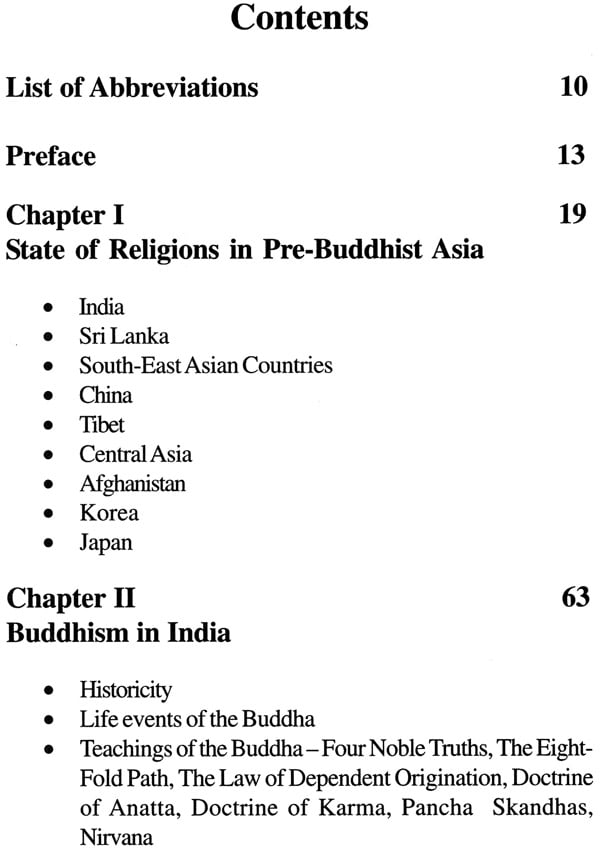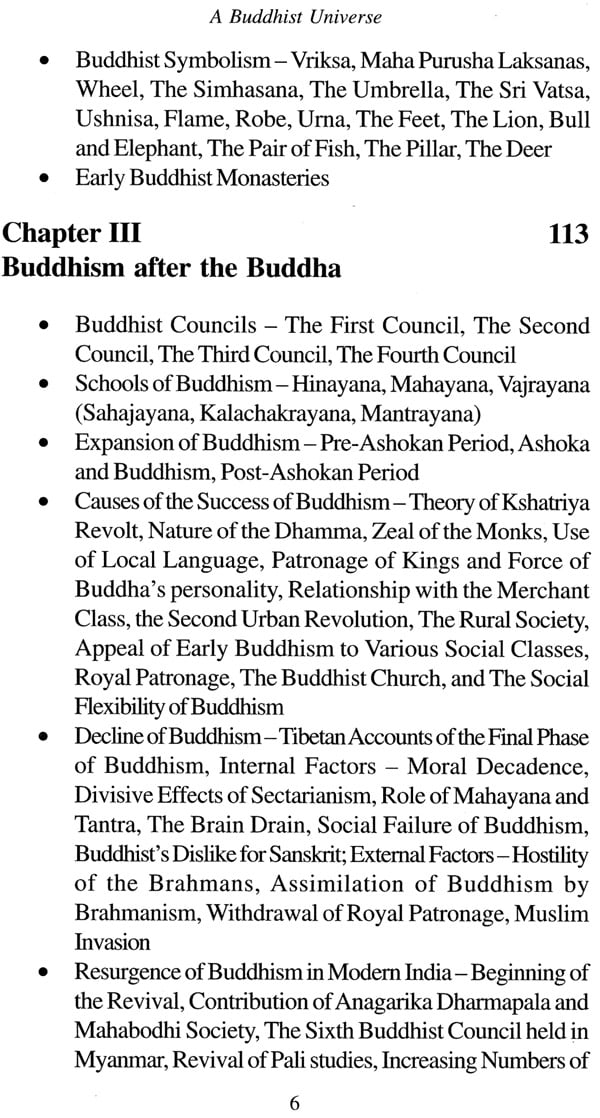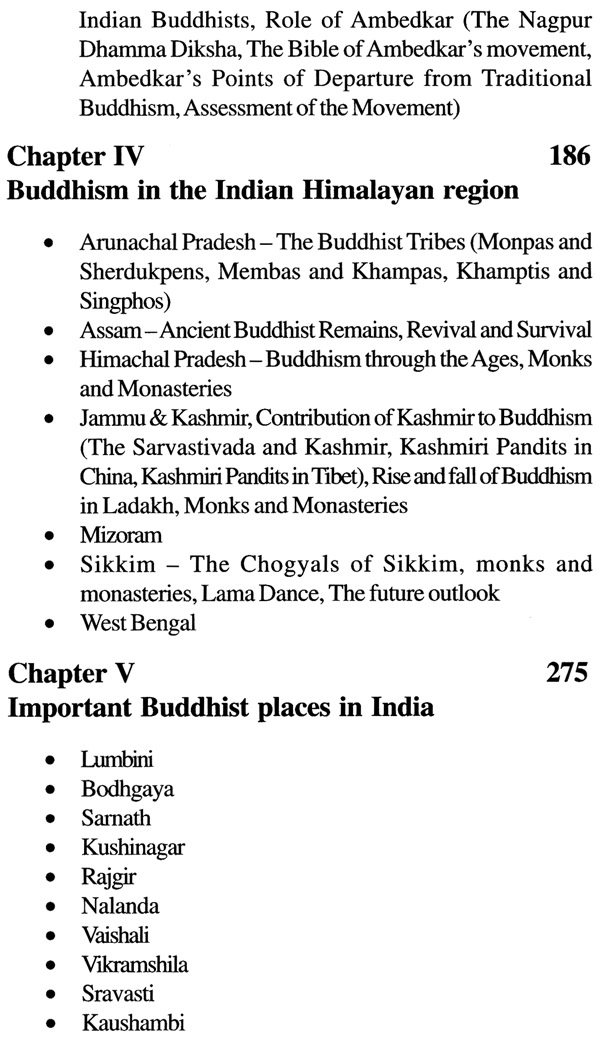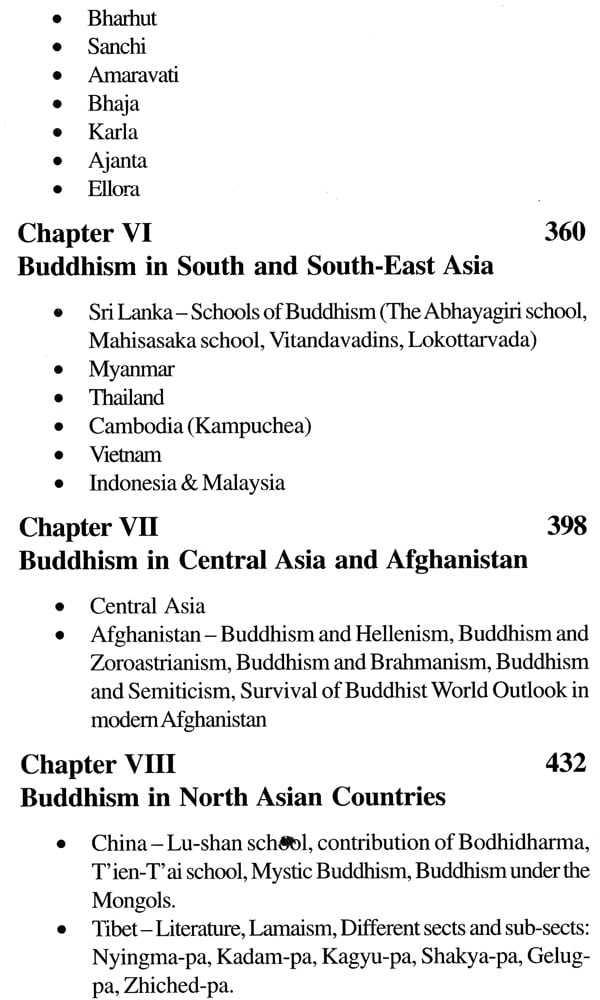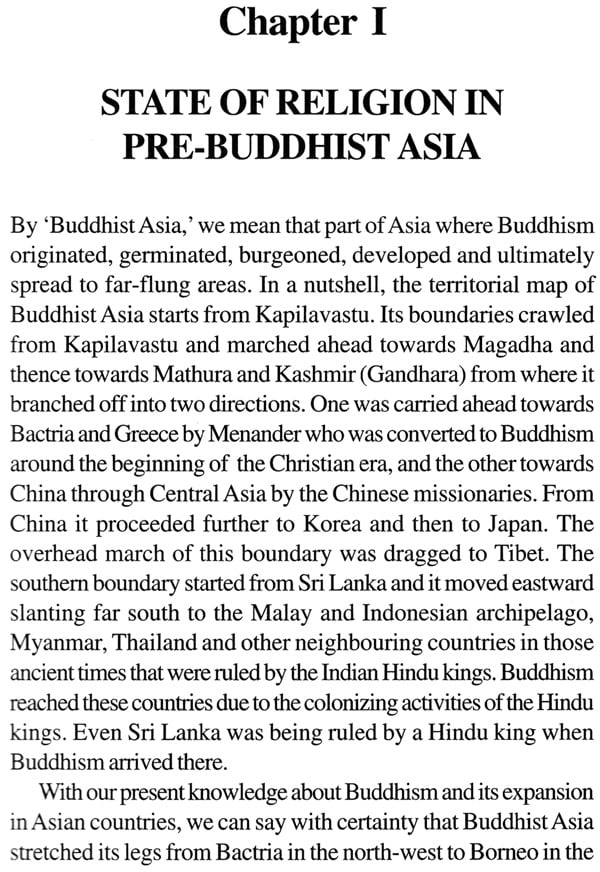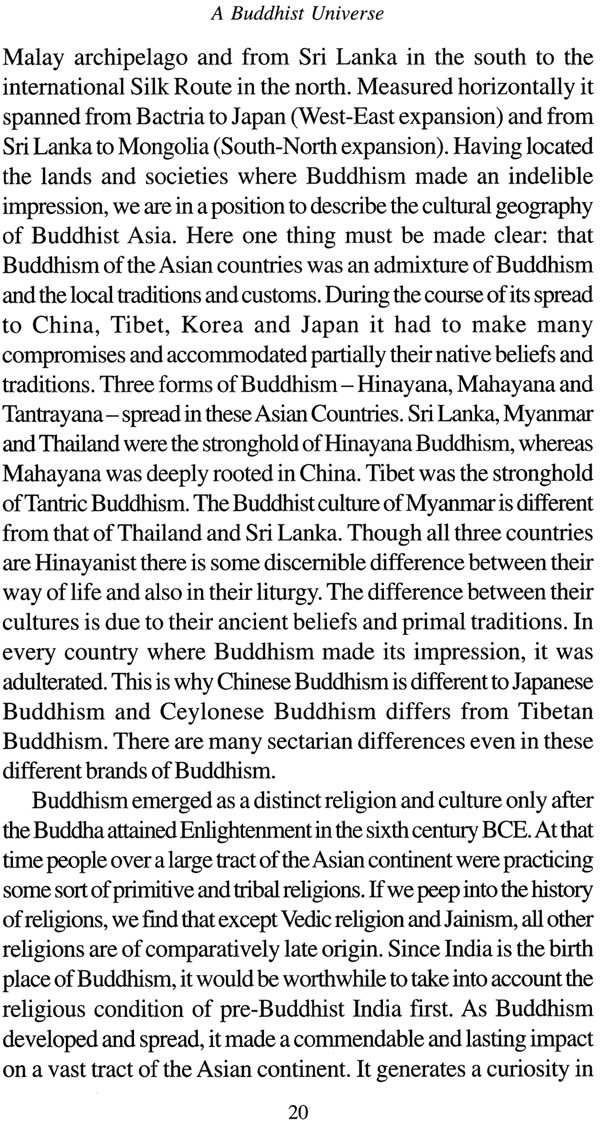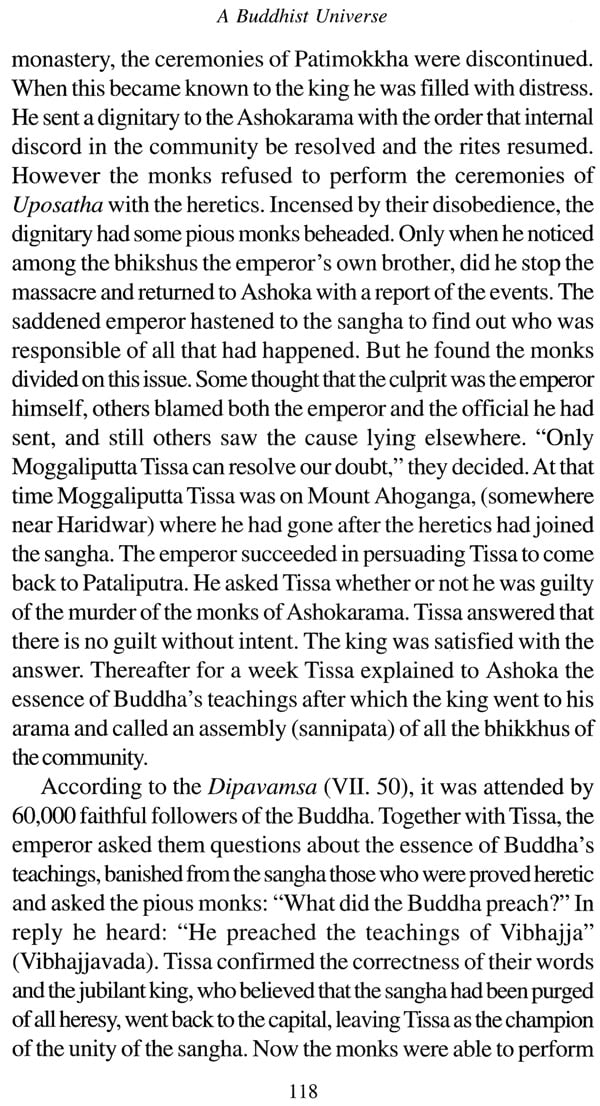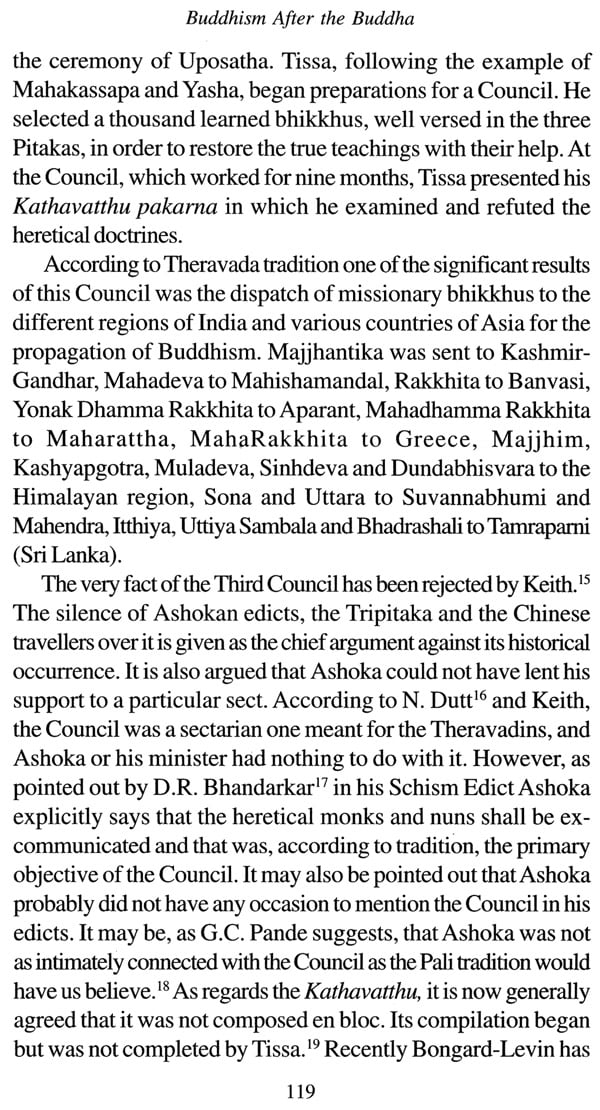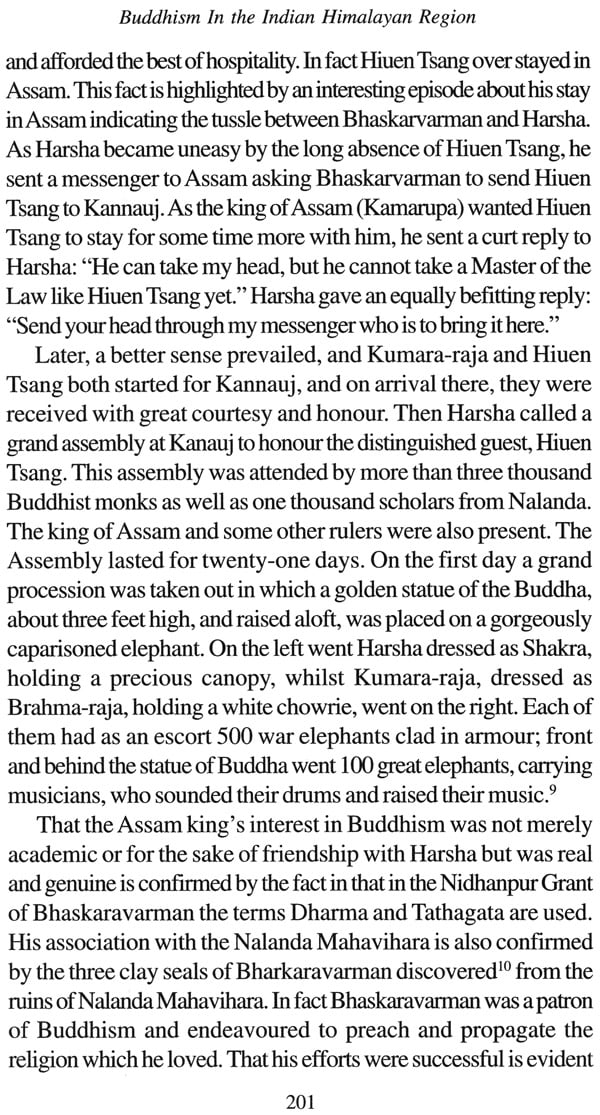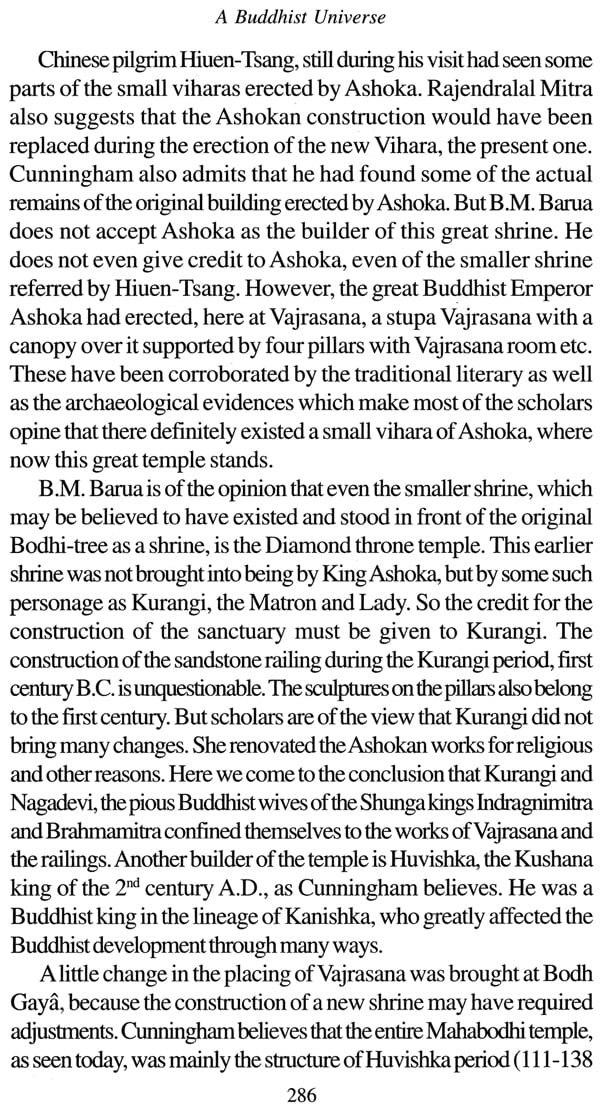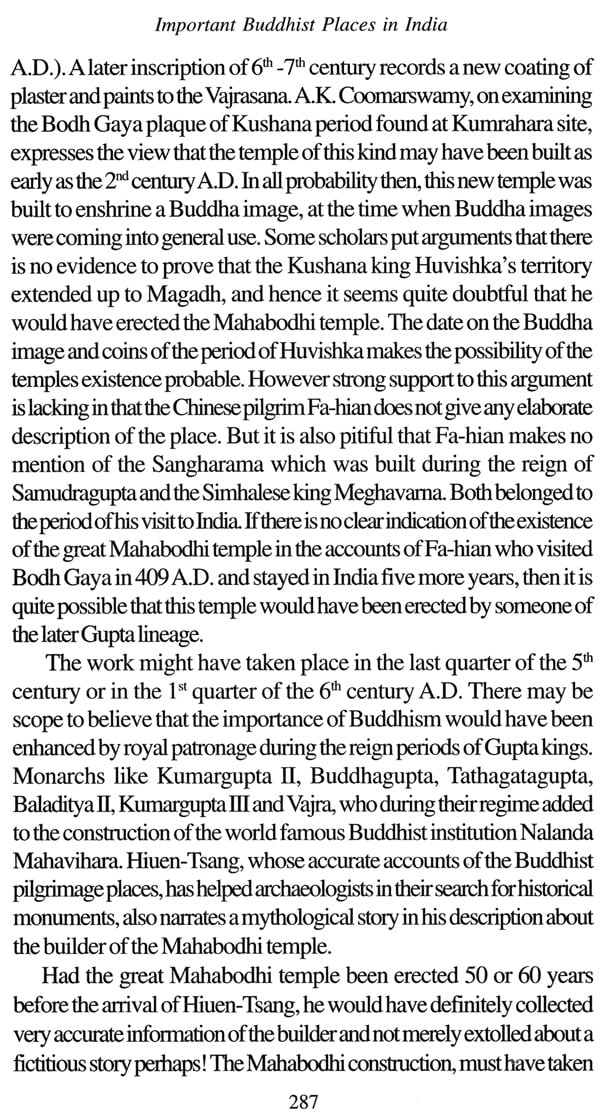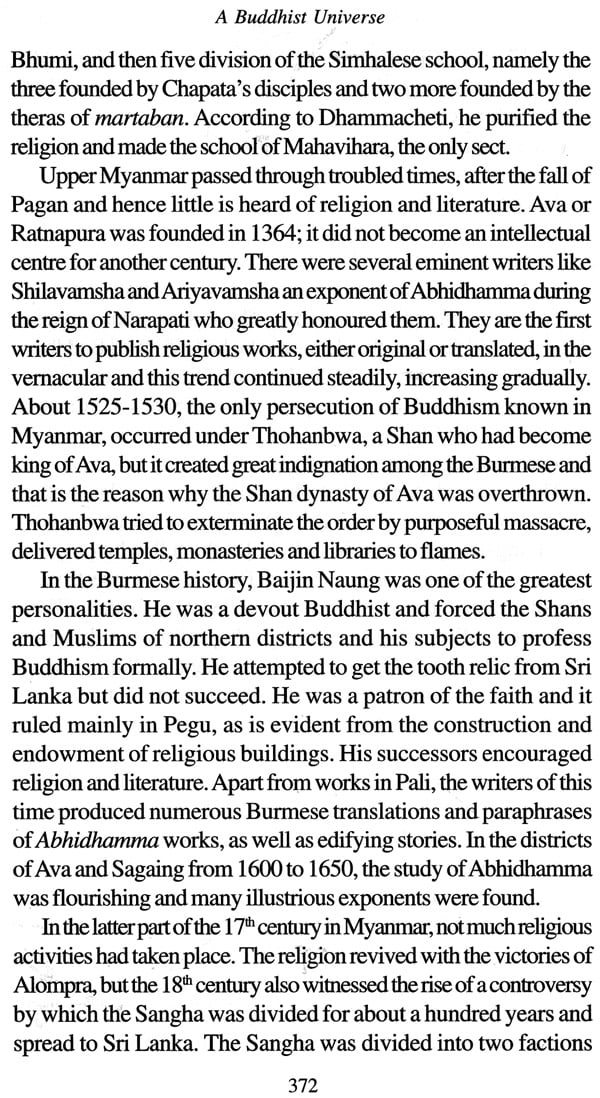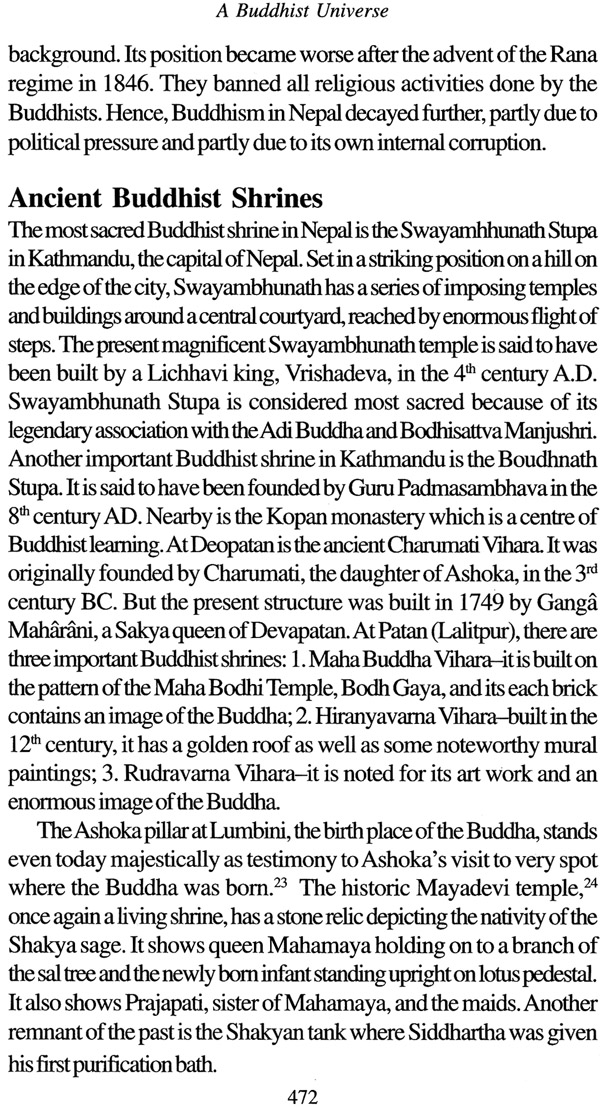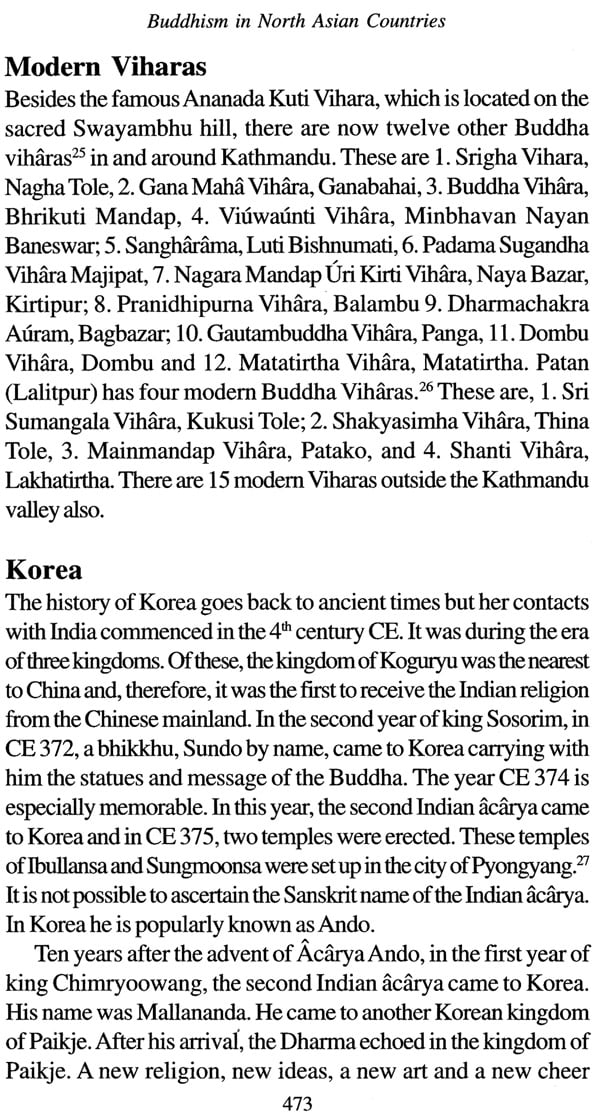
A Buddhist Universe
Book Specification
| Item Code: | NAX877 |
| Author: | G K Lama |
| Publisher: | Pilgrims Book House, Kathmandu |
| Language: | English |
| ISBN: | 9789350761007 |
| Pages: | 586 |
| Cover: | HARDCOVER |
| Other Details | 9.00 X 5.50 inch |
| Weight | 770 gm |
Book Description
A Buddhist Universe is a complete compendium of the origins. the rise and fall of Buddhism in India. It also encompasses its growth and expansion beyond the borders of India, its irthplace, from ancienetimes till the present day.
Dr. G. K. Lama, Associate Professor, Dept. of AIHC & Archaeology, Centre of Advanced Study, Banaras Hindu University, Varanasi having specializatioff in the field of Archaeology, Sputh-east Asian Culture and Buddhism has six books in his credit namely Tibet Men Bauddha Dharma Ka Itihas, Samyak Darshan (both in Hindi), Cultural Heritage of South-east Asia, Indus to Ganges, Pakkakot: Some New Archaeological Dimensions of Mid-Ganga Plain and Buddhist Cave Temples of Ancient India. He has presented 67 research papers in various National and International seminars and 81 research papers have been published in various reputed journals.
Although Buddhism was born on Indian soil in the 6th century B.C., today Buddhism is the way of life for many neighbouring countries. It has exercised a tremendous impact globally and is therefore indispensable for the understanding of culture, religion and philosophy. It enables people to recognise that the well-being of oneself and the well-being and love for all is interrelated. Today Buddhism is not only the religion of many in Western and South East Asian countries, but it is also the subject of major ongoing research undertaken in universities the world over. Buddhism has been instrumental in inculcating the spirit of love and compassion globally. Its contribution to the world order is invaluable—to art and architecture, to culture abroad, to philosophy, mysticism and ecology. Buddhism took on a new meaning when it disseminated from the land of its birth, for example in China, Japan, Tibet, Sri Lanka, Thailand and Myanmar. Buddhism has helped to identify the roots of the contemporary crisis of modern civilisation as a spiritual crisis of today's human values. The teachings of Buddhism have many norms and values to offer in terms of helping readers. Existing world orders could create a new world order based on justice, love, tolerance and moderation. Certain teachings of Buddhism are unique, and perhaps more sensitive than those of the other main religions, in terms of understanding the very concept of life. The world now has great expectations from Buddhism, as the truth made obvious by Buddhism is the way to define how one should live as a person.
Buddhism is wisdom and compassion, life and legend, beauty and bliss, as alive as a river that runs, or as a mountain upon which A Buddhist Universe a glimmer of eternity descends. The very basis of Buddhism is the thought that all lives are equal. Buddhism does not differentiate among human beings. It promotes mutual respect among all living things, and creates a world where neither victors nor losers are born. The world expects a great deal from Buddhism and we, as people studying Buddhism, must take the initiative to respond. The advent of Buddhism, with its focus on Universal Compassion, held so much sway on humanity that it attracted many followers and also resulted in the refinement of the lifestyles of the followers of other religions.
**Sample Pages**
